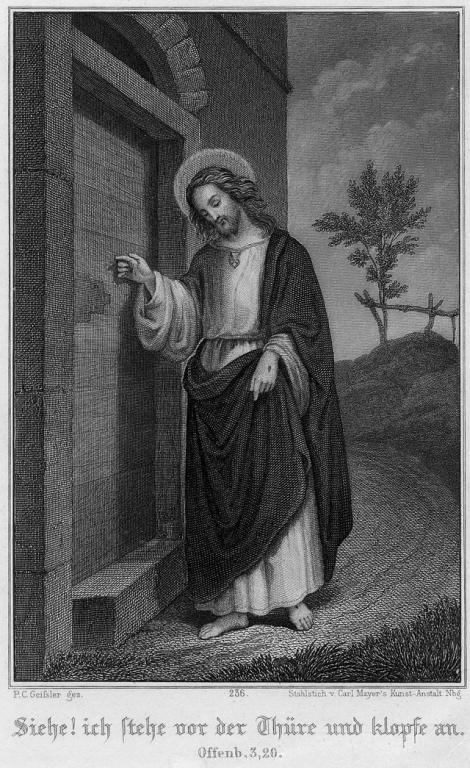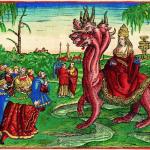
(7-10-09)
***
Tim Roof, a Presbyterian (OPC) wrote:
My Catholic upbringing militates against the idea that I was not, in at least some sense, a believer in Christ while a member of the RCC. On the other hand, there is sufficient biblical and internal witness to evidence, in my view, that I did not, in fact, know Him as I ought. Nor do I believe it likely that had I continued in Catholicism I would have come to know Him as I ought.
However, the Reformed principles regarding election and predestination, of which you are undoubtedly aware, comfort me that believers will be found throughout the world and in history having been members of all kinds of Christian denominations, including the RCC.
I came to know Jesus personally as Lord and Savior as an evangelical Protestant, after a profoundly life-changing evangelical conversion in 1977, after six months of deep depression. That relationship has deepened since my conversion to Catholicism.
One can discuss “Christianity” in a strictly doctrinal sense (as I tend to usually do) and/or in the sense of personal discipleship, which is equally important, but more difficult to discuss objectively, because by nature it is a subjective and spiritual, internal, deeply personal thing. Nominalism and lukewarmness can be found anywhere. I saw plenty of it in my Protestant days and I certainly see a lot of it in Catholic circles.
So I fully agree that there are many Catholics (just as there are many Protestants) who do not know Jesus “as they ought to.” There are tons of hypocrites on both sides. I disagree, however, that it is required for one to become a Protestant in order to experience this personal relationship. If anyone thinks otherwise, The Imitation of Christ by Thomas a Kempis (written in the 15th century, before Protestants supposedly “restored the gospel”) will quickly disabuse him.
I even wrote a paper proving that all the basic notions expressed in a Campus Crusade Four Spiritual Laws tract, are found in every Catholic Mass.
This gets to the question of subjective vs. objective criteria of what a Christian is. Because the Protestant believes that salvation is already attained, most will want to surmise whether this momentous event has happened in the life of a person. Then the Calvinist / Arminian thing comes into it, too. I understand this. I, too, had a radical life-changing experience in 1977, and again in 1980, when I was, I firmly believe, further filled with the Holy Spirit. Catholics believe that baptism regenerates: a real change takes place: one is incorporated into the Body of Christ. So these are all big discussions.
I think in the end we can only sensibly discuss the issue across the board on a more objective, theological basis: on the creedal level. I usually use the Nicene Creed as a criterion for the definition of a Christian. But if we speculate on the present spiritual state of individuals, we have no certainty, and it goes round and round. John Calvin said we cannot be certain who is of the elect; even ourselves. Luther struggled with that, too. And both believed in assurance of salvation in some sense, over against an Arminian / Catholic / Orthodox understanding.
When a Calvinist clearly forsakes the Reformed faith, and is deeply into sin and outward rebellion against God, Calvinist theology requires that he or she is now defined as having never been a Christian or saved or justified or regenerated at all. But it then follows that those who thought he or she was in the past, were wrong, and did not have certainty at all. So we just don’t know with absolute certainty. We can only go, therefore, by what a person claims to believe, in judging whether they are Christians.
***
Photo credit: 19th century steel engraving by Peter Carl Geissler (1802-1872), showing Jesus Christ knocking at the door (Rev 3:20) [public domain / Wikimedia Commons]
***













